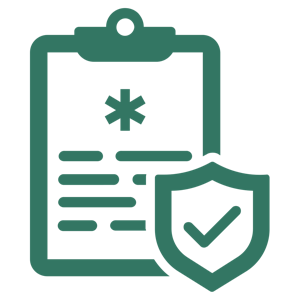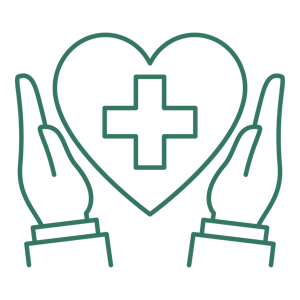How does global health contribute to sustainable development?
Sustainable development "meets the needs of the present without compromising the ability of future generations to meet their own needs"13. The 2030 Agenda for Sustainable Development, adopted by all United Nations Member States in 2015, lists Sustainable Development Goals (SDGs), which call for global partnerships between developed and developing countries14. The SDGs acknowledge the importance of addressing the social determinants of health to promote improved physical and mental health for all people.
SDGs also emphasize the importance of addressing another emerging global health threat– noncommunicable diseases (NCDs). According to the CDC, deaths from NCDs, including heart disease, cancer, and chronic respiratory disease, now exceed those caused by all communicable diseases combined15. Furthermore, the majoiry of premature deaths due to NCDs occur in middle and low income countries. Ending poverty-related illness must be achieved by improving education, reducing inequality, and spurring economic growth, all while preserving the earth’s resources. A global health initiative is an an actionable way to impact the social determinants of health and work towards achieving these goals.
Sustainable development, climate change, and global health
Climate change has many impacts on health. Directly, climate change increases the risk of illness and death as weather-related catastrophic events increase in frequency and magnitude16. The global health workforce will be crucial in climate crisis response, especially in developing countries with weak health infrastructure.
Collaboration and Partnerships in Global Health Emergency Response
As diseases spread faster than ever, global health emergency response teams play an important role in delivering support to impacted areas. The COVID-19 pandemic was arguably the most pertinent example of global health collaboration of our lifetime.
Partnerships between governments, NGOs, and private sector organizations strengthen the collective response to global health challenges.For example, Gavi is a global vaccine alliance, bringing together public and private sector organizations worldwide to increase equitable and sustainable use of vaccines17. Gavi has been instrumental in promoting equitable access to COVID-19 vaccines. Additionally, the World Bank established the pandemic fund to strengthen future global responses18.




